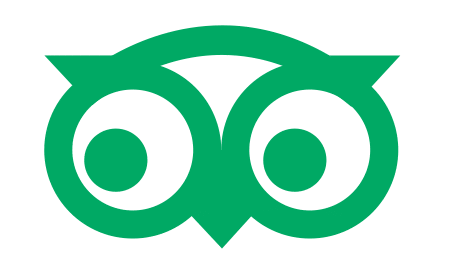的点评
Good experience for the kids
Feed The Seals At Eyemouth的点评
点评:It was a really enjoyable way for the family to get close to nature and see wild seals.
The Seals looked really healthy (not obese -come on....a portly seal is a healthy seal. Have you ever seen the Seals on the beach somewhere like Donna Nook?) and the Harbour is fine. The water is like any harbour water- and guess what the other name for a Common Seal is? That's right - the Harbour Seal. They choose to come to Harbours and always have.
A bit like Seagulls the ethics of feeding are complex. Grey Seals are doing well in UK waters. But Harbour Seals (which we saw in Eyemouth) aren't doing as well - they can't travel as far for fish and are being outcompeted by the Greys. So additional feeding is potentially helpful. Certainly assuming that if not fed, they would just find 'natural food' with no effect on the local populations health, is not a given.
It's a little like Seagulls, who are doing well near human habitation but are actually decreasing across their range.
Thought it was a lovely experience for the kids
The Seals looked really healthy (not obese -come on....a portly seal is a healthy seal. Have you ever seen the Seals on the beach somewhere like Donna Nook?) and the Harbour is fine. The water is like any harbour water- and guess what the other name for a Common Seal is? That's right - the Harbour Seal. They choose to come to Harbours and always have.
A bit like Seagulls the ethics of feeding are complex. Grey Seals are doing well in UK waters. But Harbour Seals (which we saw in Eyemouth) aren't doing as well - they can't travel as far for fish and are being outcompeted by the Greys. So additional feeding is potentially helpful. Certainly assuming that if not fed, they would just find 'natural food' with no effect on the local populations health, is not a given.
It's a little like Seagulls, who are doing well near human habitation but are actually decreasing across their range.
Thought it was a lovely experience for the kids
翻译:对于一家人来说,这是一种非常愉快的方式,可以亲近大自然并观赏野生海豹。
海豹看起来非常健康(不肥胖——拜托……肥胖的海豹是健康的海豹。你有没有在像 Donna Nook 这样的海滩上看到过海豹?)海港也很好。水就像任何港口的水一样——猜猜普通海豹的另一个名字是什么?没错——海豹。它们选择来到海港,而且一直如此。
有点像海鸥,喂食的道德问题很复杂。灰海豹在英国水域表现良好。但海港海豹(我们在艾茅斯看到的)表现得不太好——它们不能走那么远去捕鱼,而且在竞争中被灰海豹击败。所以额外的喂食可能会有所帮助。当然,假设如果不喂食,它们就会找到“天然食物”,对当地人口的健康没有影响,这并不是理所当然的。
这有点像海鸥,它们在人类居住地附近生活得很好,但实际上它们的活动范围正在缩小。
我认为这对孩子们来说是一次美好的经历
海豹看起来非常健康(不肥胖——拜托……肥胖的海豹是健康的海豹。你有没有在像 Donna Nook 这样的海滩上看到过海豹?)海港也很好。水就像任何港口的水一样——猜猜普通海豹的另一个名字是什么?没错——海豹。它们选择来到海港,而且一直如此。
有点像海鸥,喂食的道德问题很复杂。灰海豹在英国水域表现良好。但海港海豹(我们在艾茅斯看到的)表现得不太好——它们不能走那么远去捕鱼,而且在竞争中被灰海豹击败。所以额外的喂食可能会有所帮助。当然,假设如果不喂食,它们就会找到“天然食物”,对当地人口的健康没有影响,这并不是理所当然的。
这有点像海鸥,它们在人类居住地附近生活得很好,但实际上它们的活动范围正在缩小。
我认为这对孩子们来说是一次美好的经历
此点评仅代表旅行者个人的主观意见,并不代表TripAdvisor以及其合作方的意见。
关于我们
|
新闻动态
|
商务合作
|
会员中心
|
业主中心
|
业主通
|
常见问题
|
意见反馈
|
联系我们
|
营业执照
© 2025 Tripadvisor 版权所有。
使用条款 |隐私政策 |网站工作原理
部分照片由 VFM Leonardo 提供。
* Tripadvisor不是旅行社,也不是旅游预订服务代理商。我们提供免费、客观、公正的旅游资讯服务。 (显示更多)
TripAdvisor LLC 既不是预订代理商,也不是旅游运营商,不会向网站用户收取任何服务费。 按照规定,在 Tripadvisor 发布机票价格、游览和旅行套餐的合作伙伴(航空公司、旅行提供商及预订代理商),其标价须包含所有费用和附加费用。 例如, 机场出入境税费、消费税与其他服务费、手续费、杂费及附加费用。 当您向我们的某个合作伙伴进行预订时,请务必查阅他们的网站以了解当地行政部门要求的所有适用费用的具体情况。 除非另有说明,机票价格通常指的是一个人的价格(以人民币计)。
为方便起见,TripAdvisor LLC 根据从我们的预订合作伙伴获取的空房率计算每个酒店的均价。 对于游览和景点来说,所显示价格通常是每位成人的最低可用价格。 对于列出的任何旅行套餐或优惠,TripAdvisor LLC 无法保证任何特定的费率或价格。 此外,酒店均价每晚会更新,并以您的首选币种表示(使用现行汇率)。 由于这些已换算的价格是预估价格,因此,有关具体金额和币种请与预订网站进行核实。
此外,TripAdvisor LLC 无法保证我们网站上宣传的价格随时有效。 标价可能需要预订一定天数才能生效,或有不可用日期、使用条件或限制。
TripAdvisor公司对外部网站的内容一概不负责。优惠价格中不含税和其他费用。
ICP证:沪B2-20200433
沪ICP备20013175号
 沪公网安备31010502005427号
沪公网安备31010502005427号鹰程信息技术(上海)有限公司
货币/国家及地区
¥CNY
中国

